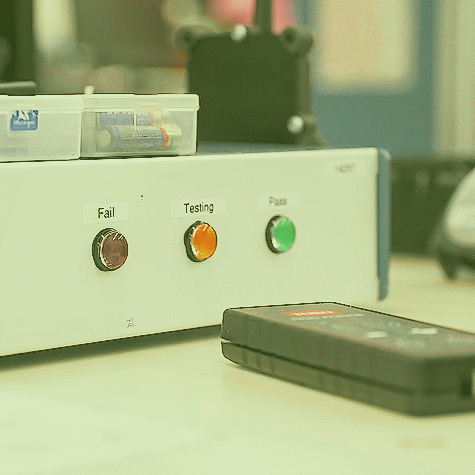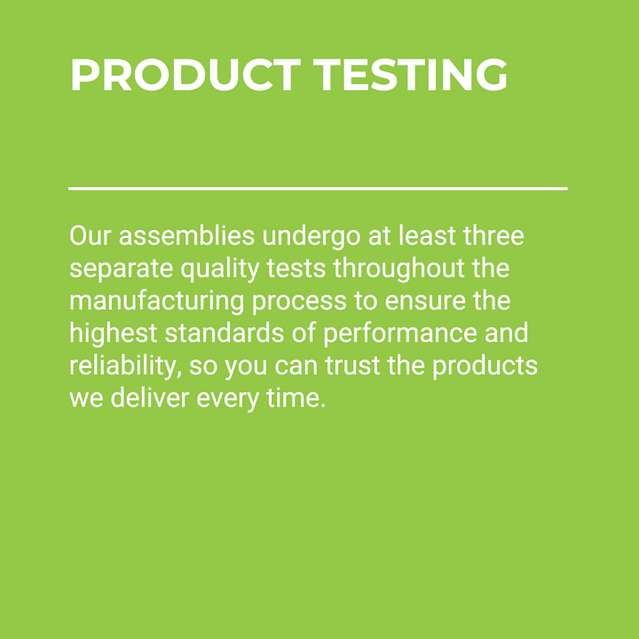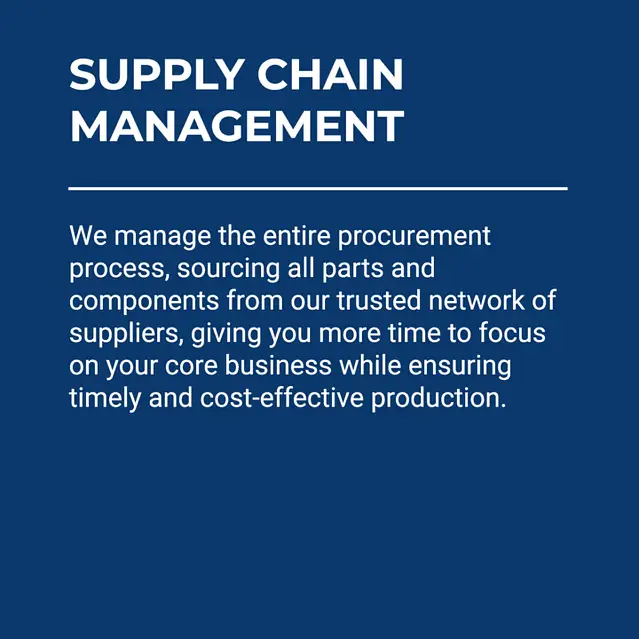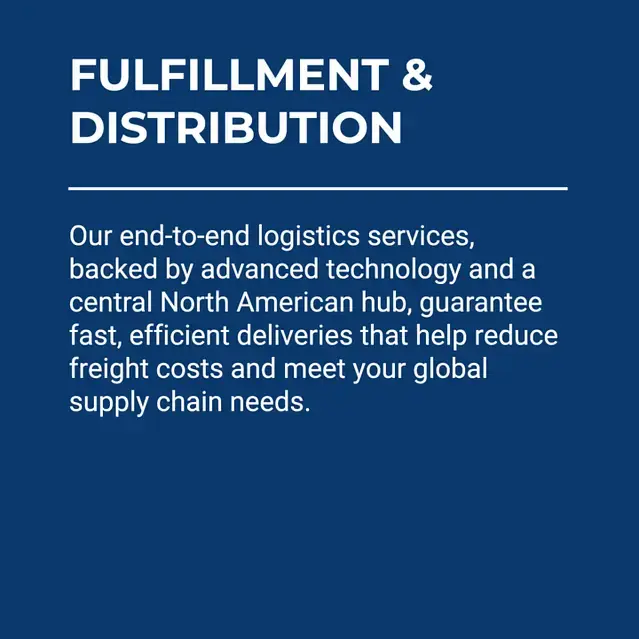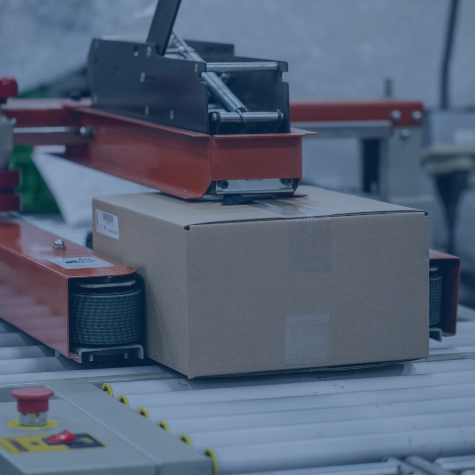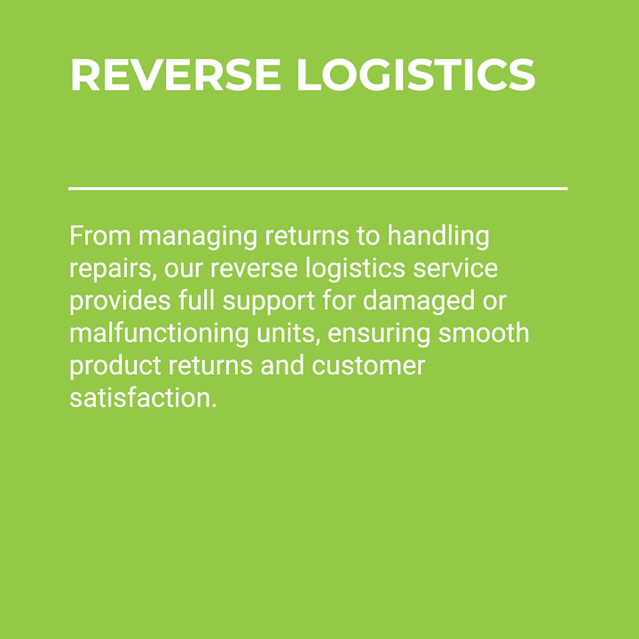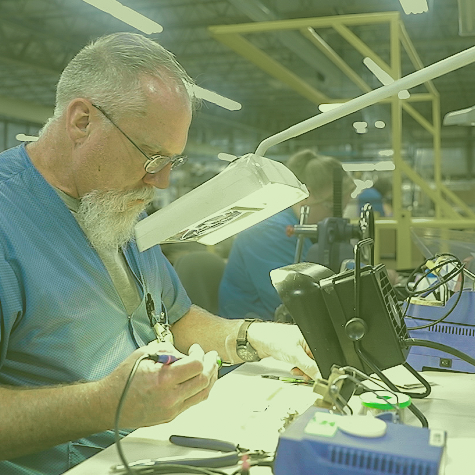As global trade tensions escalate and tariffs rise, U.S. manufacturers are rethinking their global sourcing strategies. But this shift isn't just about bringing jobs back—it's about reimagining how and for whom products are made.
Enter the "In America for America" movement—a manufacturing-focused offshoot of the broader 'in region for region' strategy popular among global OEMs. While reshoring has been part of the manufacturing conversation for years, this new approach goes further. It focuses not only on producing goods domestically but on building them specifically for the American market, with domestic supply chains, faster turnaround and long-term resilience in mind.
A related concept gaining traction in the manufacturing world is "zero-distance", a term popularized by GE Appliances as part of its strategy to bring appliance production back to the U.S. While "zero distance" broadly refers to reducing barriers between a company and its customers—improving responsiveness, agility and even employee engagement—"In America for America" applies that same thinking specifically to the supply chain. It's about building closer to the customer, for the customer, with a focus on domestic fulfillment for the U.S. market.
For OEMs looking to align with this movement, partnering with a trusted domestic manufacturing provider like RiverSide Integrated Solutions (RIS) can offer a fast, flexible path forward.
Why Now? Tariffs, Risk, and Geopolitical Pressure
Earlier this year, the U.S. started imposing sweeping tariffs on a range of goods, including a doubling of steel and aluminum tariffs and a 25% tariff on vehicles and parts. These moves, part of the "Liberation Day" tariff policy, aim to promote domestic manufacturing and reduce reliance on foreign supply chains. While the intention is to drive large-scale reshoring, the modern reality is more complex.
Modern manufacturing is inseparable from globalization. Most supply chains span continents, with parts and components crossing multiple borders during production. In fact, more than two-thirds of international trade now takes place within global value chains. Many OEMs have made substantial long-term investments in overseas operations, and those relationships, facilities and workflows cannot be unwound without massive disruption.
This is especially true in electronics manufacturing, where many critical components—such as semiconductors, certain raw materials and passive components—are not produced in the U.S. at all, or only in limited quantities. Even if an OEM wants to build entirely in the U.S., the basic building blocks simply may not be available domestically.
So, instead of reversing past investments, companies are increasingly building new capacity in the U.S. to serve the domestic market while continuing to rely on global sources for specialized components.
The "In America for America" model reflects that reality. It offers a solution rooted in flexibility, not ideology, allowing companies to adapt to trade shifts without abandoning their global infrastructure by expanding their building capacity within the U.S.
For OEMs looking to act quickly, partnering with a well-established U.S.-based EMS provider like RIS provides a practical alternative. Our decades of experience supporting complex electromechanical builds and navigating global sourcing limitations make us a reliable partner for companies seeking to build for the U.S. market without giving up global scale.
What "In America for America" Means in Practice
This movement centers around U.S.-based production for U.S. consumption. That means:
- Building domestic supply chains
- Leveraging local labor and automation
- Reducing logistics complexity
- Prioritizing regulatory compliance and quality control
Automation and advanced technologies are key to making this model cost-effective. Domestic operations that integrate robotics, AI and lean manufacturing principles enable companies to remain competitive while staying close to the customer.
Beyond efficiency, there's value in the "Made in the USA" label. It signals quality, faster lead times and stronger alignment with American regulatory and safety standards.
At RIS, we're uniquely positioned to support this shift. With full-service capabilities—from PCB assembly and subassemblies to final product build and distribution—we provide end-to-end solutions that reduce risk, simplify logistics and accelerate your time to market. Whether you're building a new U.S. presence or expanding an existing one, RIS offers the infrastructure and expertise to make it happen.
How "In America for America" Differs from Traditional Reshoring
While reshoring and the "In America for America" movement are related, they reflect different strategies and end goals. Reshoring is a general term for moving manufacturing back to the U.S., but it doesn't always account for where materials come from or where products are headed. "In America for America" is more deliberate, focusing on local supply, local production and local consumption.
Here's how the two approaches compare:

Reshoring is about where products are made. "In America for America" is also about who they're made for. It emphasizes market proximity, national interest and system-wide durability.
Crucially, it doesn't require companies to walk away from global operations. Instead, it promotes a dual-track approach: maintain overseas production where it makes sense, while developing U.S. manufacturing tailored to the American market. It's a flexible model and a much more achievable strategy in the short term.
Who's Embracing the Trend?
Some of the largest OEMs in the country are leading the charge:
- GM recently announced a $4 billion reshoring initiative, shifting Chevy Blazer and Equinox production to Tennessee and Kansas to bypass tariffs.
- Nissan, Hyundai and other major automakers are expanding U.S. facilities.
- Tooling and mold companies, such as TK Mold & Engineering and Industrial Molds, report rising domestic demand since the new tariffs took effect.
Meanwhile, CEOs at companies like Darn Tough and American Giant continue to advocate for American-made production, acknowledging that it requires investment and careful planning while offering stronger long-term returns.
Notably, these manufacturers aren't shutting down their international facilities. They're adding U.S. capacity to serve the U.S. market. That distinction matters. It reflects a scalable, realistic path forward that blends global strength with local responsiveness.
For OEMs ready to follow suit, RIS can help operationalize that expansion. Our integrated manufacturing model is built for flexibility and scale, making us an ideal partner for domestic production without compromise.
Benefits Beyond Tariffs
The "In America for America" model isn't just a workaround for tariffs. It also delivers:
- Supply Chain Resilience: Reduce exposure to global disruptions
- Faster Turnaround: Quicker design iteration and delivery
- Regulatory Compliance: Easier ITAR, ISO and other certifications
- IP Protection: Greater control over intellectual property and security
- Economic Impact: Local job creation and community investment
- Environmental Gains: Lower emissions from reduced long-distance transport
These benefits are especially meaningful for companies building critical infrastructure, regulated products or high-complexity assemblies.
The Flip Side: Challenges & Nuance
No strategy is without friction. Companies still face:
- Rising Input Costs: U.S. raw material prices are climbing
- Labor Shortages: Skilled labor remains hard to find
- Automation Gaps: Not all facilities are ready for digital transformation
- Mixed Results: Some economists caution that tariffs alone won't bring back broad employment gains due to automation efficiencies
That's why finding the right partners is crucial. OEMs don't need to go it alone. A mature EMS provider like RIS can bridge capability gaps while building toward long-term goals.
Bigger Picture & Outlook
Recent data shows that tariffs have increased domestic business starts, but gains are tempered by retaliation and market uncertainty. The overall takeaway? Tactical policy can spark momentum, but sustainable success requires long-term investment.
The "In America for America" movement is emerging as that sustainable path. It balances policy pressure, economic reality and operational pragmatism.
The "In America, For America" movement isn't a flash in the pan. It's a smart recalibration of U.S. manufacturing that matches current risks with long-term opportunity. For OEMs, it's a chance to build smarter, closer and more sustainably. For manufacturing partners like RiverSide Integrated Solutions, it's an opportunity to support domestic innovation with integrated solutions built right here at home.
Looking to move production closer to your U.S. customers without upending your global operation? RIS offers a practical, proven way forward. With over 40 years of EMS experience, we help OEMs navigate trade challenges, reduce lead times and build durable, American-made products for the U.S. market and beyond.
About RiverSide Integrated Solutions:
RIS is an advanced contract manufacturer providing robust solutions in circuit board assembly and product assembly. We employ more than 350 people and provide services to OEMs worldwide. We operate two state-of-the-art manufacturing facilities within the US.
With all of the choices in contract manufacturers out there, we know it can be challenging to find someone who understands your business model and has your best intentions in mind. RIS has always proven to be a win-win-focused relationship.
As your one-stop shop, we have the capabilities, capacity, quality assurance standards and resources to support all of your manufacturing needs. We understand that supply chain management is complex and very time-consuming, so we urge our customers to utilize us in the fullest capacity.
Our total-package solutions include:
- Dedicated Program Team
- Extensive supply-chain network for efficient parts procurement and kitting
- Subassembly and full box-build
- Warehousing and drop-shipping capabilities
- Reverse logistics
- Flexible order fulfillment
- Scalability to meet your needs
Contact us today at (507) 523-3220 to see how we can help with your manufacturing project, or contact us for a quote.





